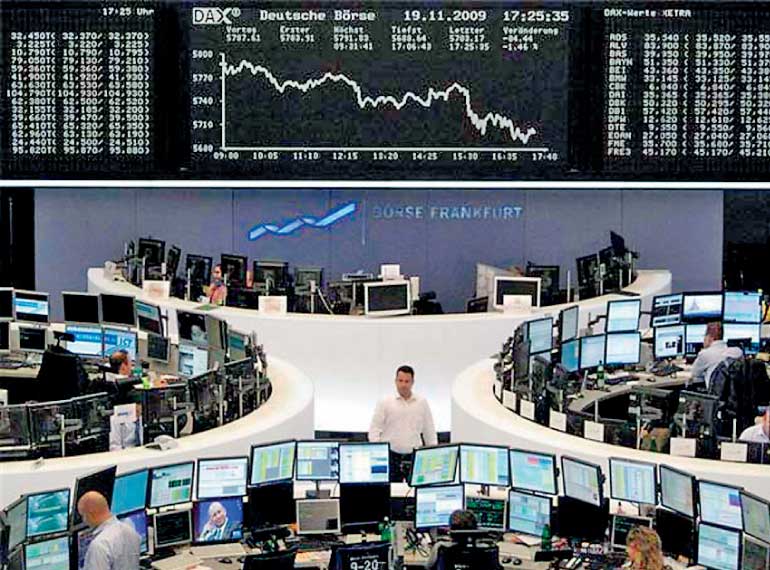Wednesday Feb 18, 2026
Wednesday Feb 18, 2026
Tuesday, 22 September 2015 00:03 - - {{hitsCtrl.values.hits}}
World stocks began the week in the red on Monday as the uncertainty created by last week’s latest postponement to the Federal Reserve’s rate hike and continued jitters over China and emerging markets dampened sentiment.
Most of Asia’s damage was done by 1.5-2% falls in Australia, Korea and Malaysia, and Europe also struggled to maintain what had looked to have been a brighter start to the day.
Car giant Volkswagen slumped more than 15% after it was found to have cheated US emission tests, while insurer RSA dropped 20% after rival Zurich abandoned a bid for the firm.

There was, however, some brighter news after an unexpectedly clear election victory in Greece on Sunday and an upgrade for Portugal’s sovereign rating which helped lift southern euro zone bond markets.
Oil and other commodity markets also rebounded after falls at the end of last week, although for the most part it was unconvincing and emerging market currencies continued to strain amid the global growth worries.
Malaysia’s ringgit suffered again after the Wall Street Journal reported that the US Federal Bureau of Investigation was now looking into money-laundering at troubled Malaysian state fund 1MDB.
“Generally markets are a bit more positive today although nothing that suggests confidence in the wake of decisions by the Federal Reserve not to hike rates last week,” said Michael Hewson at CMC markets in London.
“The economic environment has changed since the Fed last hiked rates. It is not just the US central bank..., it is wearing the mantle of the global central bank, and markets are struggling with that.”
Investors should get a good explanation this week as to exactly why the Fed didn’t raise rates with its chair Janet Yellen among a host of other officials due to speak. On top of that there will be closely watched economic data from both China and Europe which should give a clear picture where the global economy is heading.
Dollar hovers
China was the sole Asian market to defy the region’s downtrend on Monday, with the Shanghai Composite index up 1.9% and the CSI300 rising 1.75%.
Chinese Vice Finance Minister Shi Yaobin said the recent market volatility in the country was a short-term issue and that it could maintain a healthy economic growth rate going forward. A Reuters poll shows economists expect this week’s ‘flash’ September China factory PMI reading to edge up to 47.5 from 47.3 in August. That would keep it near 6/1-2-year lows, however, and mark the seventh straight monthly contraction in activity.
In the currency market, the US dollar index, which fell after last Thursday’s Fed decision, rose 0.3% to 95.365, although the US currency was slipping fractionally against the yen and euro in European trading.
The broader rise was helped as US government bond yields began to tick back up again, having fallen post the Fed meeting.
In Europe, German Bund yields were dragged up in the US slipstream as France’s rating downgrade by Moody’s on Friday added to the pressure on its bonds.
In contrast, Portuguese bond yields fell after Standard & Poor’s lifted its rating, while periphery markets in general got a boost from Syriza’s election win in Greece that reassured investors the country’s bailout will go ahead..
“We will continue negotiations in the coming period, with the debt issue being the first and most important battle,” a senior Syriza source told Reuters. “We will ask all political forces to support our efforts.”